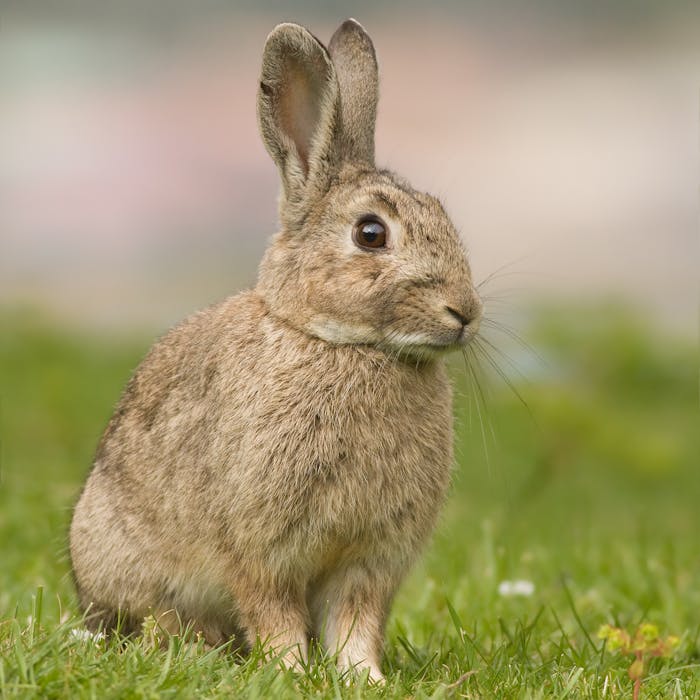
The wild rabbit - an Iberian arrival, that's really made itself at home
The wild rabbit is a much-loved creature by many Britons because it looks so cuddly, harmless and defenceless. But farmers are often less keen, and rue the day that these foreign mammals were brought to Britain to breed... like rabbits.
The European rabbit is originally native to the Iberian peninsula (Spain and Portugal) but was brought to England in the 12th century by the Normans, and kept in captivity in as a source of meat and fur. Many escaped and adapted successfully to the colder, wetter British climate. They are now doing much better here than in their native territory, where their decline in numbers has also led to the disappearance of predators such as lynxes and eagles.
Rabbits live in large groups in underground burrow systems called warrens. Female rabbits (does) produce one litter of between three and seven babies every month during the breeding season. They are herbivores, especially of grass, and are abundant in grassland areas where the soil allows them to make extensive, well-drained burrows, and where there are hedges or patches of woodland to give shelter and cover.
Rabbits are widespread in Britain. During the 19th century rabbit numbers increased dramatically, becoming major agricultural pests. The average lifespan in the wild is thought to be about three years. Rabbits are eaten by stoats, buzzards and red foxes.
Rabbits have no legal protection in Britain, and landowners often seek to control their numbers.
By 1950 rabbits were estimated to be destroying approximately £50 million worth of crops per year, but the virus myxomatosis appeared in 1953, and within 2 years 99% of the population had died. This killer virus was deliberately used as a pesticide in France and then spread to the UK. Remarkably, the population has now recovered, and there are thought to be around 40 million of them.
The word 'bunny' for rabbit seems to originate from the word 'coney', which was the common word for an adult rabbit in the past.
Further reading
Links to external websites are not maintained by Bite Sized Britain. They are provided to give users access to additional information. Bite Sized Britain is not responsible for the content of these external websites.
